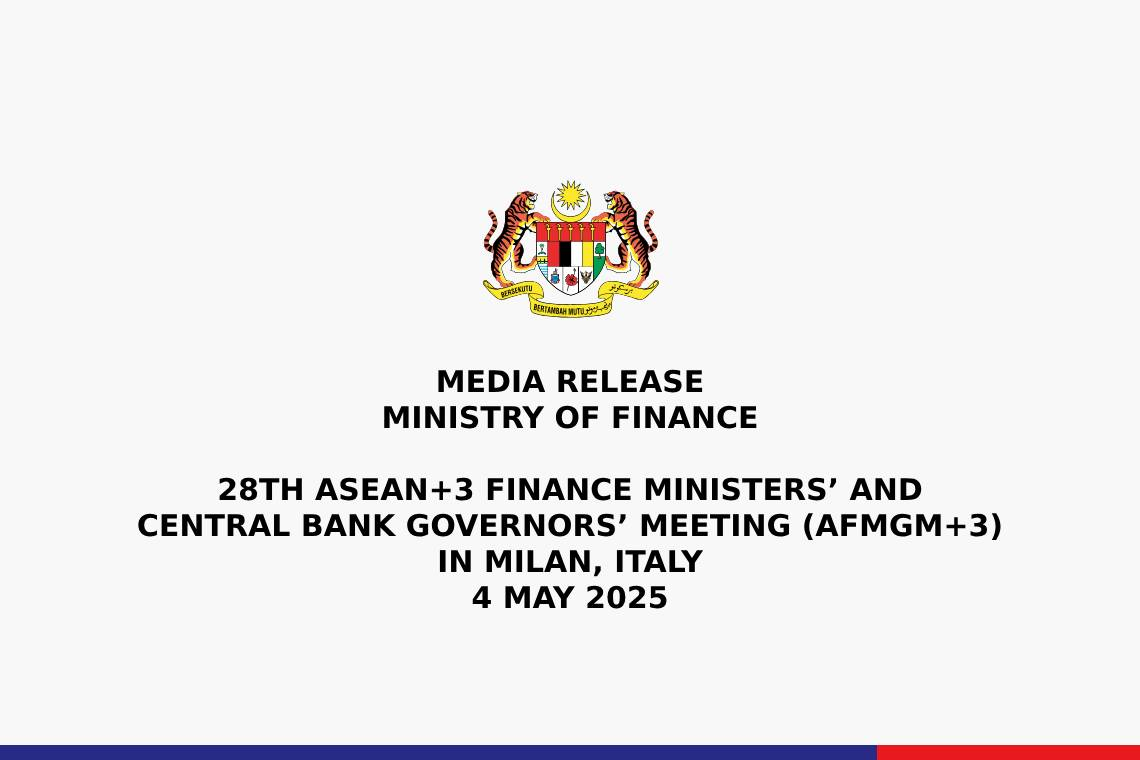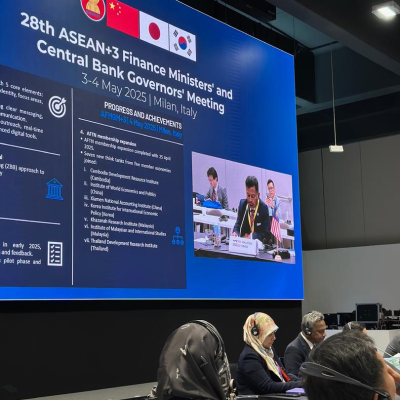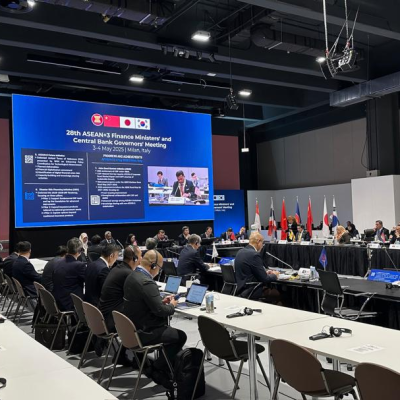WHAT ARE YOU LOOKING FOR?
Popular Tags
Select your language
Press Release
28th ASEAN+3 Finance Ministers and Central Bank Governors’ Meeting (AFMGM+3)

The 28th ASEAN+3 Finance Ministers and Central Bank Governors’ Meeting (AFMGM+3) concluded successfully on 4 May 2025 with the participation of 226 registered delegates from ASEAN Member States, the People’s Republic of China (PRC), Japan, the Republic of Korea (ROK) and International Financial Institutions (IFIs). Co-chaired by YB Senator Datuk Seri Amir Hamzah Azizan, Minister of Finance II of Malaysia (YB MKII), YBhg. Dato’ Seri Abdul Rasheed Ghaffour, Governor of Bank Negara Malaysia, H.E. Lan Fo’an, Minister of Finance of the PRC and H.E. Pan Gongsheng, Governor of the People’s Bank of China, the meeting marked a key milestone in advancing financial cooperation and resilience across the ASEAN+3 region.
Strengthening Regional Unity and Resilience
The meeting started with the Economic Review and Policy Dialogue (ERPD) featuring expert briefings from Mr. Masato Kanda, President of the Asian Development Bank (ADB) on strengthening regional resilience through cooperation, Mr. Kenji Okamura, Deputy Managing Director of the International Monetary Fund (IMF) on the global and regional economic outlook and Mr. Li Kouqing, Director of AMRO who presented the ASEAN+3 Regional Economic Outlook 2025: Strengthening Resilience in Uncertain Times.
ASEAN+3 Finance Ministers and Central Bank Governors reaffirmed the importance of regional cooperation and policy flexibility amid heightened global uncertainties and evolving structural shifts. They emphasised rebuilding fiscal buffers, supporting growth through targeted measures, advancing structural reforms and maintaining exchange rate flexibility to mitigate external shocks.
Recognising diversified sources of regional growth including robust domestic demand and deepening intra-regional trade. ASEAN+3 countries also reiterated their commitment to multilateralism and a rules-based, open, inclusive and transparent trading system with the World Trade Organization (WTO) at its core.
The meeting also highlighted the importance of strengthening macroeconomic dialogue, promoting regional financial integration and safeguarding stable, unimpeded industrial and supply chains.
Key Outcomes of the 28th AFMGM+3
The key outcomes from the meeting are:
- Progress on the Chiang Mai Initiative Multilateralisation (CMIM) including approval of the Rapid Financing Facility (RFF) and advancement toward a capital-based structure. This progress reaffirms ASEAN+3 commitment to strengthening CMIM as an effective regional financial safety net. This includes the aim of transitioning CMIM to include a paid-in capital (PIC) structure which would further complement the global financial safety net.
- Progress in advancing Disaster Risk Financing Initiative (DRFI) with the support of the Southeast Asia Disaster Risk Insurance Facility (SEADRIF) that serves as a critical ASEAN+3 mechanism for enhancing regional disaster resilience.
- 15 years of the Asian Bond Markets Initiative (ABMI) with Credit Guarantee and Investment Facility (CGIF) reaching 100 bond/sukuk issuances across 12 economies, while advancing green and digital finance;
- Introduction of the Structural Policy Improvement and Review Instrument with Technical Assistance (SPIRIT) to support structural reforms; and
- Update of the 2019 Strategic Directions with the introduction of a new Experts Panel including a Malaysian representative to guide reforms toward 2026 adoption.
The meeting concluded with the adoption of the Joint Statement of the 28th AFMGM+3. Malaysia and PRC proposed for key deliverables to be highlighted at the ASEAN+3 Leaders’ Summit in October 2025.
ASEAN+3 Finance Ministers’ Fiscal Exchange
On the sidelines of the AFMGM+3, YB Senator Datuk Seri Amir Hamzah Azizan, co-chaired the ASEAN+3 Finance Ministers’ Fiscal Exchange alongside H.E. Lan Fo’an. The fiscal exchange established a platform that expands the ASEAN+3 dialogue to focus on fiscal issues and fiscal management practices in the ASEAN region. Two fiscal policy topics of common interest were shared i.e promoting growth while maintaining fiscal sustainability and addressing population aging.
Putrajaya
5 May 2025







